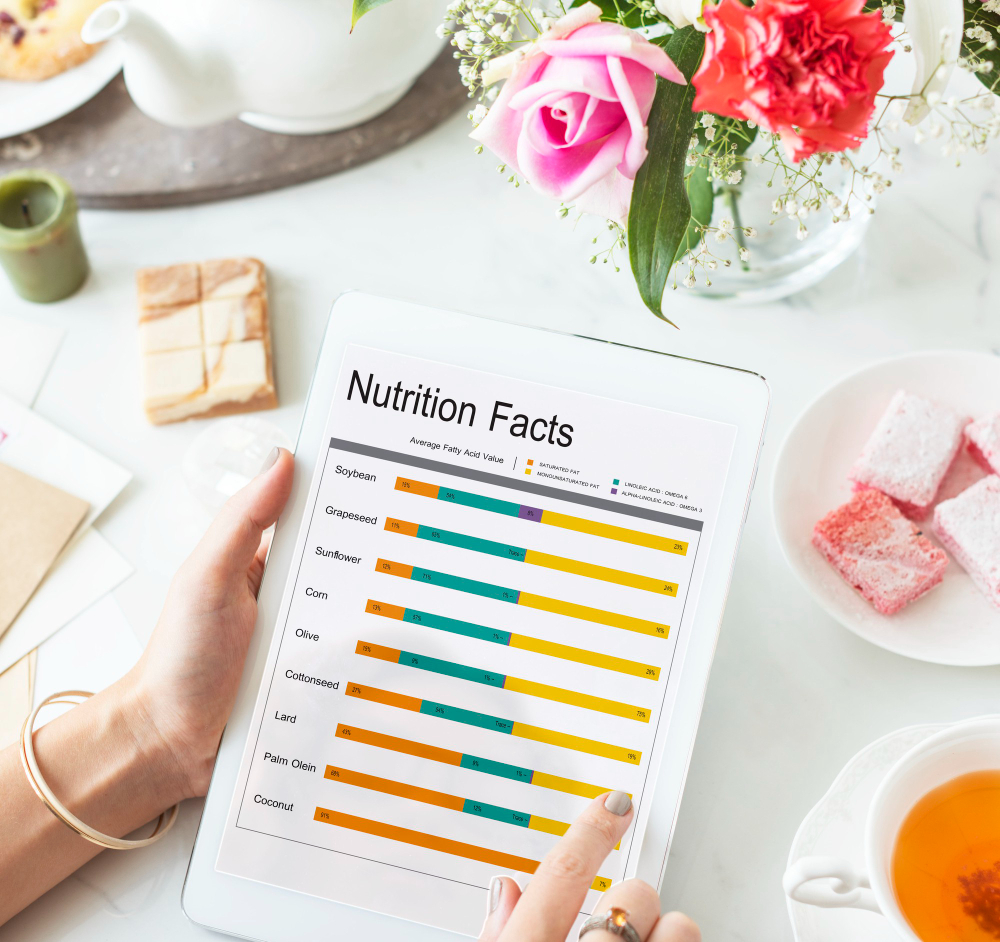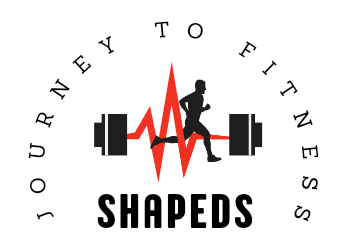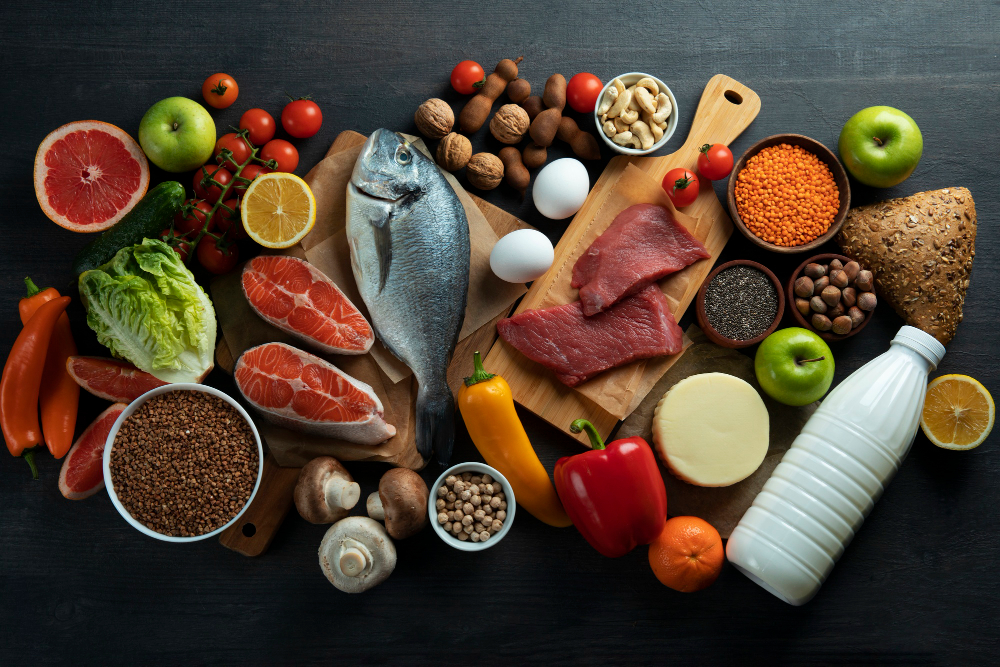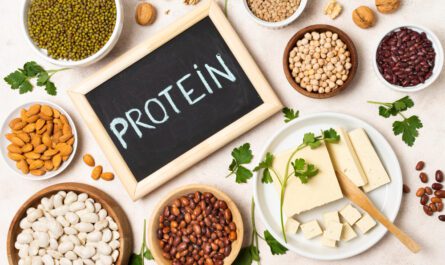Protein is a fundamental macronutrient that plays a crucial role in various functions within the body, with one of its primary roles being muscle building and repair. Whether you’re an athlete looking to enhance performance or an individual aiming to improve overall health, understanding protein and its daily requirements is essential.
Introduction to Protein
Protein, often hailed as the building block of life, plays a crucial role in various bodily functions. It serves as a fundamental component of every cell, tissue, and organ in the human body, contributing significantly to muscle growth, repair, and overall health. Understanding the significance of protein intake is pivotal, especially for individuals striving to optimize their muscle-building endeavors.
What is Protein?

Proteins are complex macromolecules composed of amino acids, commonly referred to as the “building blocks” of protein. These amino acids are essential for numerous physiological processes, including muscle synthesis, enzyme production, immune function, and hormone regulation. The human body requires a diverse range of amino acids, some of which are produced internally (non-essential amino acids), while others must be obtained through diet (essential amino acids).
Types of Protein
There are two main categories of protein: complete and incomplete. Whole proteins comprise all nine vital amino acids that the body cannot generate independently, whereas incomplete proteins are deficient in one or more of these essential amino acids. Animal-based proteins such as meat, fish, eggs, and dairy are typically complete, while most plant-based proteins are incomplete.
Uses of Protein in the Body
Muscle Growth and Repair
One of the primary functions of protein is to support muscle growth and repair. During physical activity, especially resistance training or weightlifting, muscle fibers undergo microscopic damage. Adequate protein consumption facilitates the repair and rebuilding of these fibers, leading to muscle hypertrophy (growth) over time.
Enzyme Production
Proteins also serve as catalysts for biochemical reactions in the body by facilitating enzyme production. Enzymes are crucial for various metabolic processes, including nutrient digestion, energy production, and toxin elimination.
Immune Function
Many components of the immune system, such as antibodies and immune cells, are composed of proteins. Protein intake plays a vital role in supporting immune function, helping the body defend against pathogens and infections.
Hormone Regulation
Certain proteins act as hormones or contribute to hormone synthesis and regulation. Hormones play a pivotal role in numerous physiological processes, including metabolism, growth, and stress response.
Daily Protein Requirements for Muscle Building

Determining the optimal protein intake for muscle building depends on several factors, including age, sex, body weight, activity level, and fitness goals. While individual needs may vary, general guidelines can provide a starting point for protein consumption.
Recommended Dietary Allowance (RDA)
The Recommended Dietary Allowance (RDA) for protein is set at 0.8 grams per kilogram of body weight per day for sedentary individuals. However, those engaged in regular exercise or resistance training may require higher protein intake to support muscle maintenance and growth.
Protein Intake for Muscle Building
For individuals aiming to build muscle mass, protein requirements typically range between 1.6 to 2.2 grams per kilogram of body weight per day. Consuming protein within this range ensures an adequate supply of amino acids for muscle repair and synthesis, promoting optimal muscle growth over time.
Timing and Distribution
To maximize muscle protein synthesis, it’s essential to distribute protein intake evenly throughout the day and include protein-rich foods in each meal and snack. Consuming protein sources such as lean meats, poultry, fish, eggs, dairy products, legumes, and tofu can help meet daily requirements effectively.
Post-Workout Protein
Consuming protein shortly after exercise, particularly in the form of a protein shake or meal, can enhance muscle recovery and growth. Post-workout protein intake helps replenish amino acid stores and provides the necessary nutrients to support muscle repair processes.
Potential Risks of Excessive Protein Intake
While protein is crucial for health, consuming excessively high amounts may pose risks, particularly to kidney function. Individuals with pre-existing kidney conditions should monitor their protein intake and consult with a healthcare professional if necessary. Additionally, extremely high-protein diets may increase the risk of nutrient deficiencies and other health issues.
Top 15 Non-Vegetarian protein foods along with their protein nutrition facts.

1.Chicken Breast
Protein Content: Approximately 3-ounce serving of cooked chicken breast provides approximately 26 grams of protein
Chicken breast is a common dietary staple because of its rich protein content and adaptability in various cooking methods. A 3-ounce serving of cooked chicken breast provides approximately 26 grams of protein, making it an excellent choice for meeting daily protein requirements. Additionally, chicken breast is low in fat and calories, making it ideal for those looking to maintain a healthy weight.
2.Turkey
Protein Content: Approximately 3-ounce serving of cooked turkey contains around 25 grams of protein
Similar to chicken breast, turkey is rich in protein and low in fat, making it a nutritious choice for individuals seeking to increase their protein intake. A 3-ounce serving of cooked turkey contains around 25 grams of protein, along with essential nutrients like vitamins B6 and B12, selenium, and zinc.
3.Salmon
Protein Content: Approximately 3-ounce serving of cooked salmon provides approximately 22 grams of protein
Salmon is not only a great source of protein but also rich in omega-3 fatty acids, which are beneficial for heart health and brain function. A 3-ounce serving of cooked salmon provides approximately 22 grams of protein, along with heart-healthy fats and important vitamins and minerals like vitamin D and potassium.
4.Tuna
Protein Content: Approximately 3-ounce serving of canned tuna in water contains roughly 20 grams of protein
Tuna is another fish known for its high protein content and versatility. A 3-ounce serving of canned tuna in water contains roughly 20 grams of protein, making it an easy and convenient option for adding protein to salads, sandwiches, or pasta dishes. Tuna is also a good source of omega-3 fatty acids, which have anti-inflammatory properties.
5.Beef
Protein Content: Approximately 3-ounce serving of cooked beef provides around 22 grams of protein
Beef is a rich source of protein and essential nutrients like iron, zinc, and vitamin B12. A 3-ounce serving of cooked beef provides around 22 grams of protein, along with varying amounts of fat depending on the cut. Lean cuts of beef, such as sirloin or tenderloin, are lower in fat and calories compared to fattier cuts like ribeye or T-bone.
6.Pork
Protein Content: Approximately 3-ounce serving of cooked pork loin contains approximately 26 grams of protein
Pork is often overlooked as a protein source, but it can be a healthy and delicious option when included as part of a balanced diet. A 3-ounce serving of cooked pork loin contains approximately 26 grams of protein, along with essential vitamins and minerals like thiamine, niacin, and phosphorus. Choose lean cuts of pork and trim any visible fat to keep it lower in calories and saturated fat.
7.Eggs
Protein Content: Approximately One large egg contains about 6 grams of protein
Eggs are one of the most versatile and affordable sources of protein available. One large egg contains about 6 grams of protein, along with essential nutrients like vitamins A, D, and B12, as well as choline and selenium. Eggs are also packed with antioxidants such as lutein and zeaxanthin, which play a crucial role in promoting eye health.
8.Cottage Cheese
Protein Content: Approximately 1-cup serving of cottage cheese provides approximately 28 grams of protein
Cottage cheese is a dairy product known for its high protein content and low fat levels. A 1-cup serving of cottage cheese provides approximately 28 grams of protein, making it an excellent choice for vegetarians and non-vegetarians alike. Cottage cheese is also rich in calcium, phosphorus, and selenium, which are important for bone health and immune function.
9.Greek Yogurt
Protein Content: Approximately 6-ounce serving of plain Greek yogurt contains around 17 grams of protein
Greek yogurt is another dairy product that is packed with protein and probiotics. A 6-ounce serving of plain Greek yogurt contains around 17 grams of protein, along with beneficial bacteria that support gut health. Greek yogurt is also a good source of calcium, potassium, and vitamin D.
10.Milk
Protein Content: Approximately One cup of cow’s milk provides about 8 grams of protein
Milk is a complete protein source, meaning it contains all nine essential amino acids that the body needs for optimal health. One cup of cow’s milk provides about 8 grams of protein, along with essential nutrients like calcium, vitamin D, and potassium. Choose low-fat or skim milk to limit saturated fat intake while still reaping the nutritional benefits.
11.Whey Protein
Whey protein is a popular supplement among athletes and fitness enthusiasts due to its high protein content and rapid absorption rate. Whey protein isolate, in particular, contains over 90% protein by weight, making it an efficient way to increase protein intake post-workout or as a convenient snack option. Whey protein is also rich in branched-chain amino acids (BCAAs), which are important for muscle recovery and growth.
12.Shrimp
Protein Content: Approximately 3-ounce serving of cooked shrimp provides approximately 20 grams of protein
Shrimp is a low-calorie, high-protein seafood option that is rich in nutrients like iodine, selenium, and vitamin B12. A 3-ounce serving of cooked shrimp provides approximately 20 grams of protein, making it an excellent choice for adding to salads, stir-fries, or pasta dishes. Shrimp is also low in saturated fat and a good source of omega-3 fatty acids.
13.Crab
Protein Content: Approximately 3-ounce serving of cooked crab contains around 17 grams of protein
Crab is another seafood option that is packed with protein and essential nutrients. A 3-ounce serving of cooked crab contains around 17 grams of protein, along with important minerals like copper, zinc, and selenium. Crab is also low in calories and fat, making it a healthy choice for those looking to increase their protein intake without consuming excess calories.
14.Lobster
Protein Content: Approximately 3-ounce serving of cooked lobster provides approximately 16 grams of protein
Lobster is a luxurious seafood option that is not only delicious but also nutritious. A 3-ounce serving of cooked lobster provides approximately 16 grams of protein, along with essential vitamins and minerals like vitamin B12, copper, and zinc. Lobster is also low in fat and calories, making it a lean protein choice for seafood lovers.
15.Duck Breast
Protein Content: Approximately 3-ounce serving of cooked duck breast provides approximately 19 grams of protein
Duck breast is a flavorful and nutritious protein option that offers a unique taste compared to other poultry. A 3-ounce serving of cooked duck breast provides approximately 19 grams of protein, along with essential nutrients like iron, selenium, and vitamin B6. Duck breast is also rich in omega-3 fatty acids, which are beneficial for heart health and inflammation reduction. When cooking duck breast, it’s essential to render the fat properly to achieve a crispy skin while keeping the meat moist and tender. Incorporating duck breast into your diet adds variety and depth of flavor to your meals while contributing to your protein intake and overall nutritional needs.
Incorporating these non-vegetarian foods into your diet can help ensure that you meet your protein needs while enjoying a diverse array of delicious and nutritious meals.
Top 15 vegetarian protein foods along with their protein nutrition facts

1.Beans
Protein Content: Approximately 7-9 grams per ½ cup serving
Beans, such as black beans, kidney beans, and chickpeas, are excellent sources of protein and fiber. They are versatile and can be used in various dishes, including soups, salads, and burritos.
2.Lentils
Protein Content: Approximately 9 grams per ½ cup serving
Lentils are a staple in many vegetarian diets due to their high protein content and versatility. They cook quickly and can be used in soups, stews, and curries.
3.Chickpeas
Protein Content: Approximately 7-8 grams per ½ cup serving
Chickpeas, also known as garbanzo beans, are a rich source of protein and are commonly used in Mediterranean and Middle Eastern cuisines. They can be roasted for a crunchy snack or used in salads and hummus.
4.Almonds
Protein Content: Approximately 6 grams per ¼ cup serving
Almonds are not only delicious but also packed with protein, healthy fats, and antioxidants. They make for a convenient and nutritious snack on the go.
5.Chia Seeds
Protein Content: Approximately 4 grams per 2 tablespoons
Chia seeds are tiny powerhouses of nutrition, containing protein, omega-3 fatty acids, and fiber. They can be added to smoothies, oatmeal, or yogurt for an extra boost of protein.
6.Hemp Seeds
Protein Content: Approximately 10 grams per 3 tablespoons
Hemp seeds are a complete protein source, meaning they contain all nine essential amino acids. They have a nutty flavor and can be sprinkled on salads, cereal, or yogurt.
7.Quinoa
Protein Content: Approximately 8 grams per 1 cup cooked
Quinoa is a gluten-free grain abundant in protein, fiber, and vital nutrients. It offers a flexible foundation for salads, stir-fries, and grain bowls.
8.Brown Rice
Protein Content: Approximately 5 grams per 1 cup cooked
Brown rice is a whole grain that provides a moderate amount of protein along with fiber and complex carbohydrates. It can be enjoyed as a side dish or used in casseroles and stir-fries.
9.Oats
Protein Content: Approximately 6 grams per ½ cup serving
Oats are a nutritious breakfast option that offers both protein and soluble fiber. They can be cooked as oatmeal or used in baking recipes for added protein.
10.Greek Yogurt
Protein Content: Approximately 17 grams per 6-ounce serving
Greek yogurt is strained to remove excess whey, resulting in a thicker consistency and higher protein content compared to regular yogurt. It can be enjoyed plain or mixed with fruit and honey for a tasty snack.
11.Soy Milk
Protein Content: Approximately 7 grams per 1 cup serving
Soy milk is a well-liked dairy alternative produced from soybeans. It is fortified with calcium, vitamin D, and other nutrients and can be used in place of cow’s milk in various recipes.
12.Cottage Cheese
Protein Content: Approximately 14 grams per ½ cup serving
Cottage cheese is a type of fresh cheese crafted from curds of pasteurized cow’s milk. It is rich in protein and low in fat, making it an excellent option for adding protein to salads, snacks, and meals.
13.Spinach
Protein Content: Approximately 5 grams per 1 cup cooked
Spinach is a nutrient-dense leafy green that provides a good amount of protein, along with vitamins, minerals, and antioxidants. It can be enjoyed raw in salads or cooked in a variety of dishes.
14.Broccoli
Protein Content: Approximately 3 grams per 1 cup cooked
Broccoli is a cruciferous vegetable that is rich in protein, fiber, and vitamins. It can be steamed, roasted, or stir-fried as a nutritious side dish or added to soups and pasta dishes.
15.Brussels Sprouts
Protein Content: Approximately 3 grams per 1 cup cooked
Brussels sprouts are miniature cabbages that are packed with protein, fiber, and vitamins. They can be roasted, sautéed, or grilled to enhance their flavor and nutritional value.
Incorporating these vegetarian protein foods into your diet can help ensure that you meet your daily protein needs while enjoying a variety of delicious and nutritious meals.
Consulting a Professional
If you’re unsure about your protein needs or how to incorporate protein into your diet, consider seeking guidance from a registered dietitian or nutritionist. These professionals can provide personalized recommendations based on your individual goals, preferences, and dietary restrictions.
Conclusion
Protein is an indispensable nutrient that plays a central role in muscle building, repair, and overall health. Understanding the importance of protein intake, along with optimal daily requirements, is essential for individuals striving to achieve their muscle-building goals. By prioritizing protein-rich foods and strategic timing, individuals can support muscle growth and enhance physical performance effectively.
FAQs
- How much protein do I need to build muscle?
- Protein needs vary depending on factors like body weight, activity level, and goals, but generally range from 1.2 to 2.2 grams per kilogram of body weight per day for muscle building.
- Are protein supplements necessary for muscle growth?
- While whole food sources should be prioritized, protein supplements can be convenient for individuals who struggle to meet their protein needs through diet alone, especially athletes with high training volumes.
- Can you consume too much protein?
- While protein is essential for health, excessively high intake may pose risks, particularly to kidney function. It’s crucial to consume protein in moderation and according to recommended guidelines.
- Are plant-based proteins as effective as animal-based proteins for muscle building?
- Yes, plant-based proteins can be just as effective as animal-based proteins for supporting muscle growth when consumed in adequate amounts and combined to provide all essential amino acids.
- What are some easy ways to incorporate more protein into my diet?
- Adding protein-rich foods like lean meats, poultry, fish, eggs, legumes, nuts, seeds, and dairy products to meals and snacks can help increase your daily protein intake.





